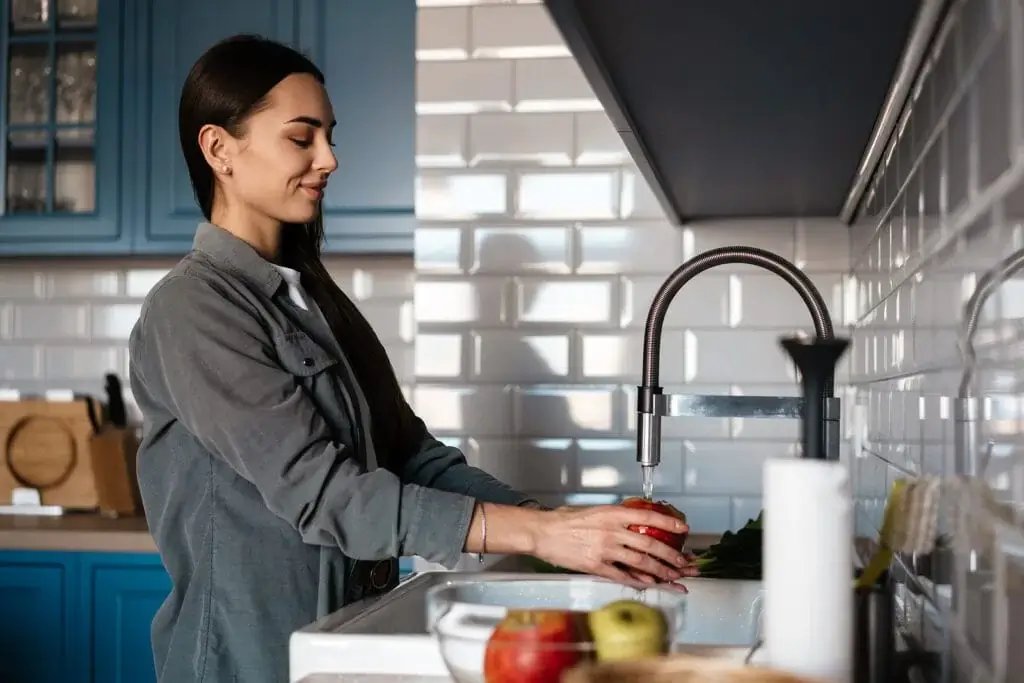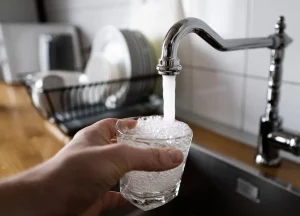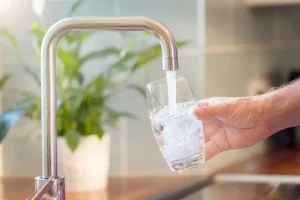Filtered water is the best water for cooking and baking
Five Reasons to Use Filtered Water for Baking and Cooking
Filtered water has a variety of amazing benefits that make it superior to other types of water, especially when it is used for cooking and baking. Here are some of the many benefits you can get from baking and cooking with filtered water.
1. Filtered water can enhance the flavor of your food and beverages.
Unfiltered water can often contain unwanted contaminants, impurities and minerals that can cause problems with the taste and texture of foods and beverages.
You can get metallic tastes from heavy metals in your water, such as copper and iron. Yuck! It is possible to see rust and sediment particles in your rice, pasta and morning coffee.
Chemical disinfectants such as chlorine and chloramine can be detected in tap water, and could transfer to the food you eat. Other common contaminants like fluorine and volatile organic compounds (VOCs) can also cause color and flavor changes in food and beverages. This can give them a dull appearance or an “off” taste.
Filtered water is a great way to cook with more precise recipes. It can remove heavy metals and chemicals that could alter the taste of your food, as well as other contaminants. You will not only enjoy better tasting dishes, but your dishes will also look brighter and more delicious.
Filtered water, in essence, ensures that your meals are prepared in the most natural state possible. This means that food’s color and taste as well as nutrition levels are not affected. Coffee lovers make sure to use filtered water when making their morning coffee.
2. Filtered water can reduce your exposure to water contaminants.
Filtered water can make your food and beverages taste better and less contaminated.
Water in your home may contain naturally occurring contaminants like calcium, magnesium, and iron. Particularly if you have city water, your water may contain chlorine or chloramines. These compounds are used to disinfect your water before it even enters your home. These compounds may be able to treat your water but chlorine-resistant cysts such as giardia and cryptosporidium, pharmaceuticals and VOCs, lead and many other substances often get a pass.
Private well water can also be contaminated with contaminants that can adversely affect your health and food quality. You may get sickened from bacteria, pesticides and herbicides as well as cancer-linked chemicals such PFAS, which can be found in well water.
It is the best way for you and your family to be protected against any contaminants in your water.
3. Filtered water makes your food brighter.
It is common to use chlorine as a bleaching agent. Therefore, it comes as no surprise that any items you boil or wash in chlorinated water can also be affected. Unfiltered water can cause a loss of color and taste in fruits and vegetables. This is also true for brown rice and red bean. They will also be bleached by chlorine, even partially. It will likely leave them with an unpleasant smell and taste.
4. Filtered water produces better results
Unwashed vegetables and fruits can be a breeding ground for germs and pesticides. Animals can infect produce and soil with toxic substances, as well as workers who have poor hygiene. The risk of contamination increases further when the crop is harvested. This happens because the produce goes through many hands (not clean). Even after the purchase, contamination can occur during food preparation and improper storage.
Recent outbreaks have been caused by contaminated food, such as lettuce, spinach, tomatoes, cantaloupe, and tomatoes. To prevent illnesses and diseases, the Food and Drug Administration (FDA), had to issue many recalls.
Despite the fact that you may be cleaning your produce to remove pesticides and herbicides as well as bacteria, it is possible to wash it with water that has the same contaminants. Filtered water is a quick and simple solution. It doesn’t contain any contaminants that could recontaminate your fruits and vegetables.
5. Filtered water is a great way to make better bread.
Restaurants and bakeries are increasingly using filtered water to make delicious breads and other baked goods. Baking is an art and science, as any skilled baker will tell you.
Baking bread requires more than just high-quality ingredients. Water is essential for gluten formation, yeast fermentation, the dispersion of salt, sugar, yeast, and consistency in your dough.
The most common culprits that can affect your baking are chemicals like chlorine and dissolved hard minerals. Although some hard minerals are acceptable in water for baking bread, excessive hard water can affect the fermentation rate and tighten gluten in the dough. This will alter the texture of the loaf and make it dry and hard. Chlorine can also reduce the fermentation rate and alter the final product’s taste.
Filtered water is a great way to increase the yeast’s effectiveness, making it rise higher and produce softer treats. Filtration removes chlorine and leaves you with fresh-smelling, great-tasting loaves. You can also “soften” water to remove hardness minerals for even better results.











